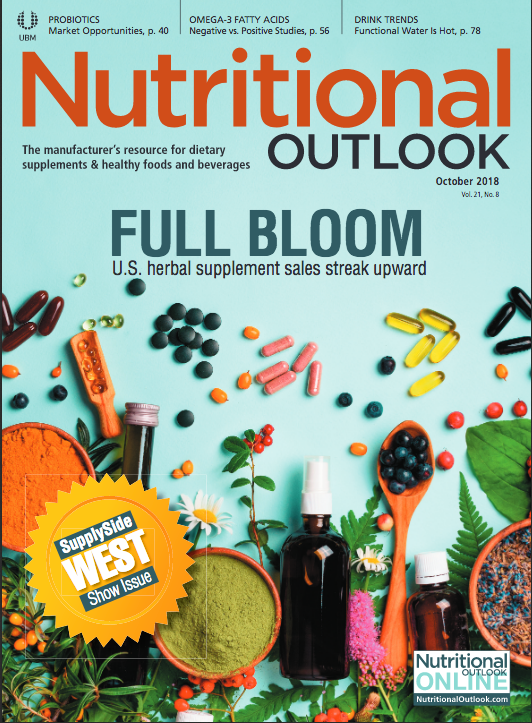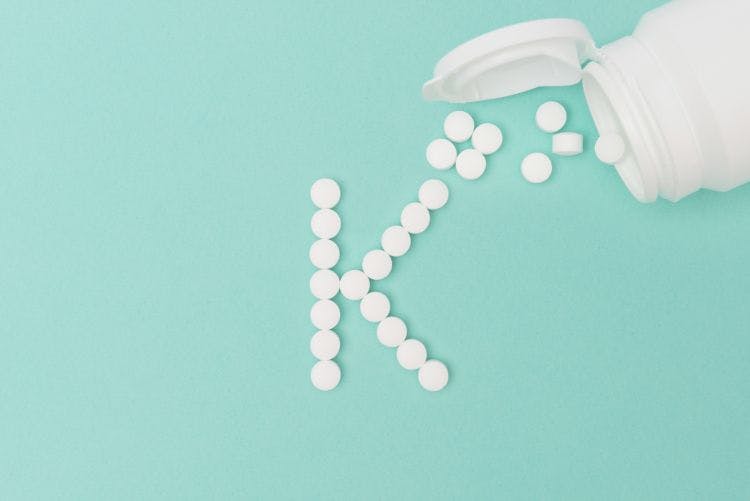Omega-3 Cochrane meta-analysis is highly flawed, researcher writes
Bill Harris, PhD, omega-3 researcher and founder of OmegaQuant, says a recent Cochrane report is biased because it ignores a large body of evidence showing favorable effects of EPA and DHA on cardiovascular risk.
Photo © iStockphoto.com/dtimiraos

In July 2018, the Cochrane Collaboration produced a 730-page report1 on the efficacy of omega-3 fatty acids EPA and DHA in cardiovascular disease. The review, titled “Omega-3 fatty acids for the primary and secondary prevention of cardiovascular disease,” claims to be the “most extensive systematic assessment of the effects of omega-3 fats on cardiovascular health to date.” At the end of their paper, the review authors concluded that “moderate- and high-quality evidence suggests that increasing EPA and DHA has little or no effect on mortality or cardiovascular health…”
This report set in motion a series of negative headlines for long-chain omega-3s EPA and DHA, including “Buy More Vegetables Instead of Omega-3 Supplements to Improve Heart Health, Report Says,”2 “Do Omega-3 Supplements Really Benefit the Heart?”3 and “Omega-3 Supplements Don’t Protect against Heart Disease.”4
Do these headlines signal the nail in the coffin for omega-3s for heart health? Or is there more to the story? The only way to make sense of any of this is to take a deep dive behind these headlines.
Three Takeaways from the Cochrane Review
The Cochrane review’s key findings were as follows, based on evidence cited by review authors.
- Increasing EPA and DHA intake has little or no effect on preventing all-cause deaths and cardiovascular events (high-quality evidence) and probably makes little or no difference to cardiovascular death, coronary deaths or events, stroke, or heart irregularities (moderate-quality evidence). (Coronary events are illnesses of the arteries.) Additionally, EPA and DHA slightly reduce serum triglycerides and raise HDL (high-quality evidence).
- Eating more ALA (for example, by increasing intake of walnuts or enriched margarine) probably makes little or no difference to all-cause or cardiovascular deaths or coronary events but probably slightly reduces cardiovascular events, coronary mortality, and heart irregularities (moderate-/low-quality evidence). Effects of ALA on stroke are unclear as the evidence was of very low quality.
- There is evidence that taking omega-3 capsules does not reduce heart disease, stroke, or death. There is little evidence of effects of eating fish. Although EPA and DHA reduce triglycerides, supplementary omega-3 fats are probably not useful for preventing or treating heart and circulatory diseases. However, increasing plant-based ALA may be slightly protective for some heart and circulatory diseases.
Biased Conclusions?
At OmegaQuant, we believe that this Cochrane report is biased because it ignores a large body of evidence showing favorable effects of EPA and DHA on cardiovascular risk. In our opinion, the review authors’ conclusions go far beyond the data that they review. Below are some thoughts and considerations regarding this report.
Same Studies…Why?
Why do we keep doing meta-analyses on the same studies? That is, why do researchers publishing reviews on the links between omega-3s and any benefits for cardiovascular disease continue to conduct reviews based on the same studies, over and over again, generating negative headlines over and over again? This Cochrane review, for instance, presents no new information that other review authors haven’t stated before.
We’ve seen several of these high-profile “no effect” omega-3 meta-analyses published over the years that are based on the same old studies (e.g., Aung et al.5, Balk et al.6, and Rizos et al.7). For this reason, headlines that proclaim “new studies show omega-3 are ineffective…” are often highly misleading because no new studies were involved. Meanwhile, there have been other meta-analyses (e.g., Maki et al.8, Alexander et al.9, and Maki et al.10) based on new data that reported overall benefits for EPA and DHA, but these reviews have not been reported on as broadly as the aforementioned negative headlines.
The Cochrane meta-analysis is just a rehash of old data and certainly does not provide the final answer on the omega-3 question. New data are needed and will be forthcoming with the anticipated publishing of the REDUCE-IT trial11 (being sponsored by pharmaceutical firm Amarin Pharma) and STRENGTH study12 (being sponsored by pharmaceutical firm AstraZeneca) in the next one to two years.
What Were These Studies Testing?
We need to understand what the studies included in the Cochrane meta-analysis were testing, how they were designed, and who they enrolled. Typically, the people in these studies were older, already had some chronic cardiometabolic disease, and were taking several other medications. What’s more, low doses of omega-3s were typically given, and the studies typically ran for only two to three years on average.
We agree that, in this scenario, omega-3s may not “work,” but that is not the relevant question. The more appropriate question is nutritional, not pharmaceutical: “Do higher intakes of EPA and DHA in the diet over decades reduce risk for disease?” These studies cannot answer that question, and therefore their conclusion that “omega-3s don’t improve heart health” is far too broad.
The Interpretations Don’t Match the Reported Findings
The Cochrane authors’ interpretations do not match their reported findings. For example, there was no statistically significant effect of ALA for coronary heart disease events or angina among the studies, and yet the review authors said there was a “probable benefit.” On the other hand, there was strong statistical significance for EPA and DHA in reducing risk for coronary heart disease events; yet, the review authors said there was “probably no benefit.” Why? Why hold EPA and DHA to different standards than ALA?
This disconnect between the data and the conclusions is troubling, and it clearly reveals a strong bias in favor of ALA and against long-chain omega-3s EPA and DHA.
More specifically, in the “Main Results” section of the Cochrane report, the authors dismiss the highly statistically significant benefit shown for long-chain omega-3s in coronary heart disease events (relative risk (RR) 0.93; 95% confidence interval (CI) 0.88-0.97*; 84,301 participants; 5469 people experienced CHD events in 28 randomized controlled trials (RCTs)). Instead, the authors concluded that “Long-chain omega-3 (LCn3) probably makes little or no difference to [coronary heart disease] event risk.” This dismissal, according to the authors, was based on the fact that the observed effect “was not maintained in sensitivity analyses.”
What were these sensitivity analyses? They were sub-analyses that eliminated studies that the authors felt were at “moderate or high risk for bias,” including the following trials: the GISSI-Prevenzione13, JELIS14, and GISSI Heart Failure15 trials, three of the largest and most favorable studies in the long-chain omega-3 field. It’s no wonder that the authors, by omitting these trials, found “no effect.” Granted, the former two trials were controlled, just not placebo-controlled, but the latter trial was eliminated because the investigators said its researchers failed to report that they confirmed that capsule blinding was effective. Really?
In more breathtakingly evidence of bias, the review authors concluded that ALA “may slightly reduce risk of cardiovascular events” based on a non-significant relative risk estimate of 0.95 (95% CI 0.83-1.07*) observed in 19,327 participants with 84 cardiovascular disease events. Evidence was gathered from only five RCTs providing what the review authors describe as “low-quality evidence.” Worse still, they concluded that ALA “probably reduces risk of [coronary heart disease] mortality (RR 0.95; 95% CI 0.72-1.26*; 18,353 participants; 193 coronary heart disease deaths; 3 RCTs), and arrhythmia (RR 0.79; 95% CI 0.57-1.10; 4,837 participants; 141 events, 1 RCT).” The relative risk estimates were not statistically significant for either of these latter two endpoints (coronary heart disease mortality and arrhythmia), and the results were based on data from just three RCTs with coronary heart disease mortality as the endpoint and just one study with arrhythmia as the endpoint.
*If the 95% CI does not include the value of 1.0, the relationship is statistically significant. If 1.0 is included in the confidence interval, then it is not significant. “Non-significant” does not mean “no effect.” It means we cannot conclude with the standard level of confidence that the effect observed, which is almost always favorable for omega-3, is real. But that does not mean the effect was not real.
The Doses in These Studies Were Too Low
The doses of EPA and DHA typically used in these studies is unlikely to produce a cardioprotective level of omega-3 in the blood. A cardioprotective level of omega-3 in the blood would be 8% based on the Omega-3 Index (an index for measuring the level of omega-3 in the blood).** Most likely, the people in these studies included in the Cochrane analysis reached an Omega-3 Index level of about 6%, which is still 2 percentage points away from the level needed to significantly reduce your risk of coronary heart disease.
In a 2017, I co-authored a meta-analysis16 that included 10 prospective cohort studies in which low-versus-high blood omega-3 levels (i.e., an Omega-3 Index of 4% vs. 8%) were compared. In that study we found a significant 35% reduction in risk for cardiac death in the highest versus the lowest Omega-3 Index groups.
Last, but not least, the failure of the investigators in these aforementioned negative trials to screen their patient populations for a low Omega-3 Index at baseline is problematic. This is because you would not expect to see an effect of supplementation in people who already have healthy blood levels of omega-3s. Because background diets nowadays contain more and more omega-3s, the difference in EPA and DHA intakes between the “active” and the “placebo” groups has lessened, making the benefits of additional omega-3 supplementation more difficult to detect between the two groups.
Where Do We Go from Here?
RCTs and prospective population observation studies-especially those that use a biomarker of intake instead of a diet estimate of intake-should carry equal weight in the decision of whether or not a low nutrient intake “causes” disease. It’s very difficult-however not impossible-to replicate the long-term effects of chronic exposure with a short-term (and especially a low-dose) treatment.
In the omega-3 space, we have firm observational data supporting the benefits of supplementation, but we should not necessarily expect to see an effect of omega-3 in the typical RCT trial designs for all the usual reasons: low doses, short-term treatment, concurrent use of powerful heart medications, enrolling people regardless of their baseline omega-3 levels, etc. The takeaway is that we still do see a positive effect of omega-3 supplementation, especially on cardiac death, which is remarkable.
*Editor’s note: The author is the co-creator of the Omega-3 Index test.
Bill Harris, PhD, is the founder of OmegaQuant (Sioux Falls, SD), and co-creator of the Omega-3 Index test. Dr. Harris has spent several decades studying omega-3s and their impact on human health. To date he has published more than 280 papers on fatty acids.
References:
- Abdelhamid AS et al. “Omega-3 fatty acids for the primary and secondary prevention of cardiovascular disease.” The Cochrane Database of Systematic Reviews. Published online July 18, 2018.
- Telegraph reporters. “Buy More Vegetables Instead of Omega-3 Supplements to Improve Heart Health, Report Says.” The Telegraph. Published online July 18, 2018. www.telegraph.co.uk/news/2018/07/18/buy-vegetables-instead-omega-3-supplements-improve-heart-health/
- Sandoiu A. “Do Omega-3 Supplements Really Benefit the Heart?” Medical News Today. Published online July 18, 2018. www.medicalnewstoday.com/articles/322512.php
- Hooper L. “Omega-3 Supplements Don’t Protect against Heart Disease-New Review.” The Conversation. Published online July 18, 2018. http://theconversation.com/omega-3-supplements-dont-protect-against-heart-disease-new-review-100111
- Aung T et al. “Associations of omega-3 fatty acid supplement use with cardiovascular disease risks: meta-analysis of 10 trials involving 77â¯917 individuals.” JAMA Cardiology, vol. 3, no. 3 (March 1, 2018): 225-234
- Balk EM et al. “Omega-3 fatty acids and cardiovascular disease: summary of the 2016 Agency of Healthcare Research and Quality Evidence Review.” Nutrients, vol. 9, no. 8 (August 11, 2017)
- Rizos EC et al. “Does supplementation with omega-3 PUFAs add to the prevention of cardiovascular disease?” Current Cardiology Reports, vol. 19, no. 6 (June 2017): 47
- Maki KC et al. “Use of supplemental long-chain omega-3 fatty acids and risk for cardiac death: An updated meta-analysis and review of research gaps.” Journal of Clinical Lipidology, vol. 11, no. 5 (September-October 2017): 1152-1160
- Alexander DD et al. “A meta-analysis of randomized controlled trials and prospective cohort studies of eicosapentaenoic and docosahexaenoic long-chain omega-3 fatty acids and coronary heart disease risk.” Mayo Clinic Proceedings, vol. 92, no. 1 (January 2017): 15-29
- Maki KC et al. “Omega-3 fatty acid supplementation and cardiovascular disease risk: glass half full or time to nail the coffin shut?” Nutrients, vol. 10, no. 7 (July 4, 2018)
- Bhatt DL et al. “Rationale and design of REDUCE-IT: Reduction of Cardiovascular Events with Icosapent Ethyl-Intervention Trial.” Clinical Cardiology, vol. 40, no. 3 (March 2017): 138-148
- ClinicalTrials.gov Identifier: NCT02104817
- “Dietary supplementation with n-3 polyunsaturated fatty acids and vitamin E after myocardial infarction: results of the GISSI-Prevenzione trial. Gruppo Italiano per lo Studio della Sopravvivenza nell’Infarto miocardico.” Lancet, vol. 354, no. 9177 (August 7, 1999): 447-455
- Yokoyama M et al. “Effects of eicosapentaenoic acid on major coronary events in hypercholesterolaemic patients (JELIS): a randomised open-label, blinded endpoint analysis.” Lancet, vol. 369, no. 9567 (March 31, 2007): 1090-1098
- Tavazzi L et al. “Effect of n-3 polyunsaturated fatty acids in patients with chronic heart failure (the GISSI-HF trial): a randomised, double-blind, placebo-controlled trial.” Lancet, vol. 372, no. 9645 (October 4, 2008): 1223-1230
- Harris WS et al. “The Omega-3 Index and relative risk for coronary heart disease mortality: estimation from 10 cohort studies.” Atherosclerosis. Published online May 6, 2017.




















